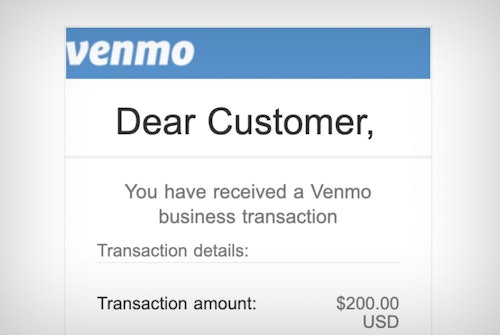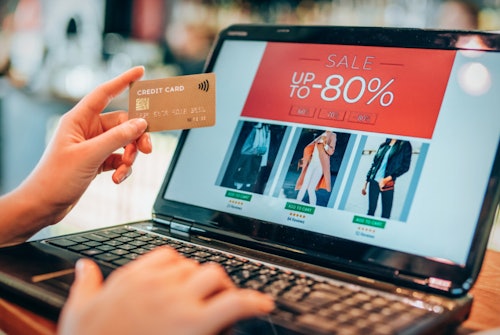- Choose Strong Passwords and Stay Safe Online
- Be Selective About What You Share
- Stay Safe Online By Being Careful of What You Download
- Enable Privacy Safeguards on Browsers and Websites
- Equip Your Internet of Things Devices with a Firewall
- Use a Virtual Private Network for Increased Protection
- Stay Safe Online By Checking Links First
- Purchase from Legitimate, Secure, and Trusted Websites
- Keep Your Software Up to Date
- Turn Off Your Bluetooth Connection
- Common Online Scams
- Why Is It Important to Stay Safe Online?
- Frequently Asked Questions
Do you want strangers to have access to your medical records? What about how much money you make a year? We all have certain types of information we’d like to keep private instead of broadcasting it for the entire world to see. As such, you need to take proper precautions to stay safe online.
We’ve compiled a shortlist of the most important actions you should take to protect yourself and your data online.
Choose Strong Passwords and Stay Safe Online
You’ve likely heard this advice before, but we’re going to keep reiterating it to you because of its importance when staying safe online. Complex, unique passwords are critical if you want to protect your private data and financial information.
You also want to use a different password for each of your accounts. Yes, we know remembering all these complex passwords is tough but it’s a small price to pay for added data protection.
The easiest way to manage and remember all of your unique passwords is to use a password manager like LastPass. They can create and store all of your passwords for you and you'll be able to access them from all of your devices.
Be Selective About What You Share
Social media has become notorious for internet users over-sharing personal details online. Scammers often use this information that’s shared with the public to devise sophisticated phishing attacks, stage a break-in while you’re on vacation, or pose as online friends to mine your personal information.
They could also use this information to hack into your account and acquire information to gain access to your banking accounts or steal your identity. That’s why it’s become increasingly important to be selective about what data your share and with whom.
Personal information that scammers can use to distinguish or trace your identity should always be kept private. This includes your:
- Name
- Maiden name
- Mother’s maiden name
- Social Security number
- Driver’s license number
- Passport number
- Residential address
- Email address
- Phone numbers
Stay Safe Online By Being Careful of What You Download
Downloading anything from the internet comes with its inherent risks because you might be unintentionally downloading malicious software. And as scammers become increasingly more intelligent, the threat of downloading malicious content has widened in scope significantly. For instance, we can download content from:
- Emails
- Websites
- Text messages
- Chat apps
- Social media messages
In some cases, you won’t even realize your error until much later on.
Malicious content can cause more harm and undue stress than the level of convenience the content may provide. Your electronic device could be out of commission for good. This malicious software can also spread to other devices on your network. To avoid these issues, you should only download reputable software from sources you trust. If the source seems suspicious, it’s better not to take the risk.
Enable Privacy Safeguards on Browsers and Websites
Did you know web browsers use several mechanisms to track our behaviors online? These include web usage mining, fingerprinting, beacons, and cookies. Often, we don’t think about the data we’re giving away while browsing such as our physical location and online search history. If you want to surf the internet without leaving a trail, we suggest using private browsing methods.
- Google Chrome: Open a new window in incognito mode.
- Mozilla Firefox: Open a private browsing window.
- Internet Explorer: Open InPrivate browsing window.
- Safari: Open a private window.
Additionally, we recommend you use some browser security add-ons to protect yourself online. According to Geekflare, the top browser security add-ons include:
- Avira Browser Safety
- Avast Online Security
- Adblock Plus
- Malwarebytes Browser Guard
- DuckDuckGo
- uBlock Origin
- HTTPS Everywhere
- Ghostery
- Privacy Badger
- TunnelBear
Equip Your Internet of Things Devices with a Firewall
Even if you’re taking all the necessary precautions, an added layer of security couldn’t hurt. To protect your internet of things (IoT) devices (i.e., anything that connects to the internet), we suggest using a network firewall.
A network firewall is a security system that creates a barrier between your trusted internal network and the internet (also known as an untrusted external network). This will block any unauthorized access to your computer or other devices. Network firewalls are usually included with comprehensive security software packages. A firewall will help you ensure scammers can’t enter your network.
Some of the best security software packages include:
- Bitdefender Internet Security
- Kaspersky Internet Security
- Norton LifeLock 360 Deluxe
- Kaspersky Security Cloud
- Bitdefender Total Security
- McAfee Total Protection
- Webroot SecureAnywhere Internet Security Complete
- Trend Micro Maximum Security
Use a Virtual Private Network for Increased Protection
A virtual private network (VPN) is a piece of software designed to create a secure internet connection so you can connect your device anywhere and have it be untraceable. When you use a VPN, scammers can’t monitor your activity online or access your data through your internet connection.
Using a VPN is even more important these days with more of us working remotely and being put more at risk of online scams.
Stay Safe Online By Checking Links First
If you see a hyperlink in an email, on a webpage, in a text message, or in another location, you should resist the urge to click just because you can. You can invite unwanted malicious content on your devices with mindless clicking habits. Therefore, you want to make sure you trust links before clicking on them.
How do you do this? It’s simple.
- Hover your mouse over the link.
- You'll see a preview of the full link on the bottom left-hand corner of your browser.
- Google the company name or website domain to make sure it’s legitimate before clicking.
For instance, you might get an email from your bank with a link. If the link doesn’t match your bank’s website domain, don’t click it.
Purchase from Legitimate, Secure, and Trusted Websites
If you’re an online shopper, you want to make sure the sites you visit are legitimate. There are a few ways to check for secure websites:
- Make sure the web address at the top of your web browser starts with “https://". The “s” stands for “secure,” which means the site is encrypted and safe.
- Look for the padlock symbol next to the web address.
- Always check for any misspellings or bad grammar in web addresses. Scammers try to fool internet users by using similar websites but with small errors.
For an added layer of security, you could use a safe search tool such as McAfee WebAdvisor to steer clear of risky sites.
The majority of websites are now secure, however, there are still some that have not adopted this additional security measure. The good thing is, some web browsers will warn you before you land on a non-encrypted site.
Keep Your Software Up to Date
Software updates are critical to keeping you safe online. So, while it might be tempting to ignore these updates until the last possible minute, it’s not in your best interest. Software updates repair any security holes or flaws to protect your data as well as other people in your network.
You don’t want to be the one to blame for spreading malicious software so make sure to update as soon as possible. Updating your software keeps scammers out.
Turn Off Your Bluetooth Connection
Similar to public WiFi, Bluetooth can put your data at risk if you’re not mindful. To keep your data safe, you should turn off Bluetooth when it’s not in use or use hidden mode to prevent unknown devices from discovering your connection.
Additionally, if you ever pair your device with a rental car or computer that doesn’t belong to you, make sure to unpair your phone and clear any personal data before returning the item.
Common Online Scams
Some of the most common online scams everyone should be aware of include:
- Phishing emails
- Electronic greeting card scams
- Banking offer scams
- Lottery scams
- Hitman scams
- Online dating scams (romance scams)
- Fake antivirus software popups
- Hijacked Facebook profile scams
- Make money fast scams
- Travel scams
- Bitcoin scams
- Fake news scams
- Fake shopping websites
- Job offer scams
- Text message scams
- Overpayment scams
Why Is It Important to Stay Safe Online?
In the information age, which is inundated with oversharing on social media, online privacy is almost non-existent. Scammers use this information to access your banking details, rack up charges on your credit cards, take out loans under your name, and destroy your credit ratings. Your identity is valuable, and that’s why you need to protect your identity online.
Federal Trade Commission StatsFrom January 2020 to May 2021, online shopping frauds resulted in a loss of over $38 million, and had the most amount of fraud reports during this period.
Often, we’re quick to assume senior citizens are the first to be duped by online scams. But did you know millennials are more vulnerable to online scams? According to the Federal Trade Commission (FTC), a government agency focused on civil antitrust law and consumer protection, “40% of adults age 20-29 who have reported fraud ended up losing money in a fraud case.”
For this reason, all internet users, regardless of their age or digital prowess, need to be aware of the most popular techniques scammers use to gain unauthorized access to your private data and banking or financial information.











Comments